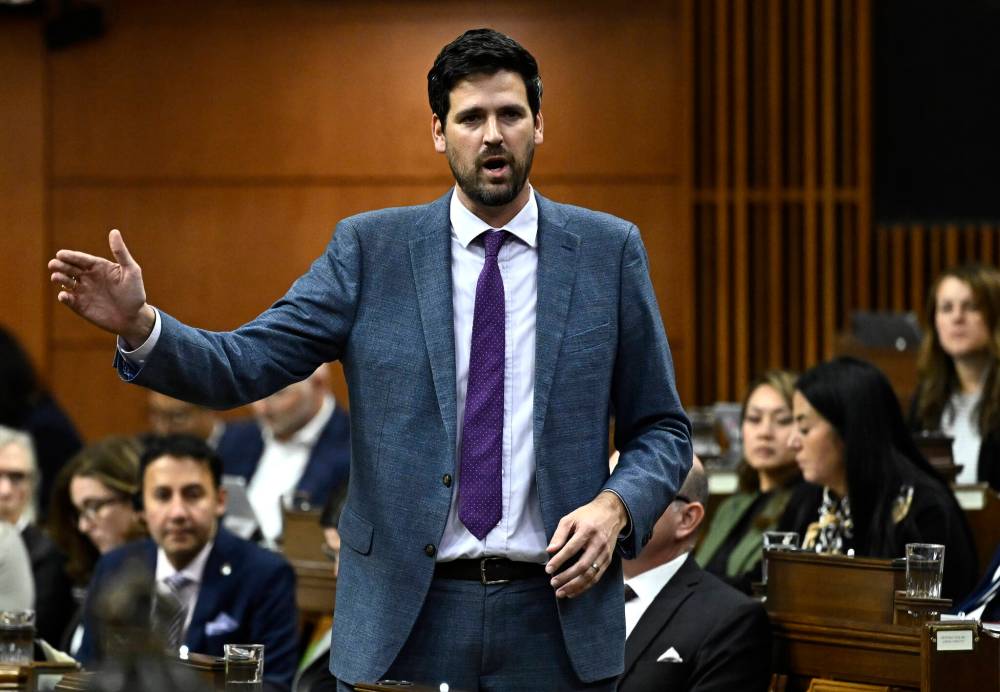Provinces doth protest too much
Advertisement
Read this article for free:
or
Already have an account? Log in here »
To continue reading, please subscribe:
Monthly Digital Subscription
$0 for the first 4 weeks*
- Enjoy unlimited reading on winnipegfreepress.com
- Read the E-Edition, our digital replica newspaper
- Access News Break, our award-winning app
- Play interactive puzzles
*No charge for 4 weeks then price increases to the regular rate of $19.00 plus GST every four weeks. Offer available to new and qualified returning subscribers only. Cancel any time.
Monthly Digital Subscription
$4.75/week*
- Enjoy unlimited reading on winnipegfreepress.com
- Read the E-Edition, our digital replica newspaper
- Access News Break, our award-winning app
- Play interactive puzzles
*Billed as $19 plus GST every four weeks. Cancel any time.
To continue reading, please subscribe:
Add Free Press access to your Brandon Sun subscription for only an additional
$1 for the first 4 weeks*
*Your next subscription payment will increase by $1.00 and you will be charged $16.99 plus GST for four weeks. After four weeks, your payment will increase to $23.99 plus GST every four weeks.
Read unlimited articles for free today:
or
Already have an account? Log in here »
Hey there, time traveller!
This article was published 14/11/2023 (757 days ago), so information in it may no longer be current.
It’s once bitten, twice shy.
Or, on a baser level, it’s like something from an old Peanuts cartoon, where Lucy says, “Believe me, Charlie Brown, this time I’ll hold the football so you can kick it…” She never has, and she likely never will.
Last week, a group of Canada’s premiers issued a joint statement about new actions by the federal government to address housing shortages: instead of simply anteing up money to the provinces to deal with housing, the federal government is bypassing the provinces, instead choosing to make specific deals with municipalities. The federal government is asking individual municipalities to apply for funding that would move projects that meet federal housing goals ahead quickly.

The Canadian Press
Federal Housing Minister Sean Fraser has plenty of reasons not to want to deal with provincial governments.
It’s happening in Winnipeg: the federal Housing Accelerator Fund could supply up to $192 million to the city, if the city agrees to remove or bypass some regulations that could delay the projects.
Needless to say, that’s got provincial noses out of joint.
The joint provincial/territorial statement on the fund is that, well, provinces and territories feel they should have a hand in the spending.
“Provinces and territories need to have a key role in the development and execution of federal housing programs: the issue cannot be solved by the federal government and municipalities acting without the meaningful involvement and support of provinces and territories,” the statement says. “Predictable and flexible federal funding that flows exclusively through provinces and territories is necessary to address unique needs and support long-term capital plannings.”
The argument is a familiar one: provinces want their respective jurisdictions respected, so that they can decide where and if money should be spent, and get political credit in the process.
It wasn’t that long ago that provincial premiers were bristling at the temerity of the federal government for even suggesting that provincial governments had to be accountable for federal health money actually being spent on health.
It didn’t matter that the federal government was comfortable with the provinces and territories setting up their own priorities for how they wanted to use the health money. All the federal government was asking for was some measurable data showing that the money was both being spent on the province’s priorities, and that it was actually having an impact.
Obviously, the provinces and territories prefer federal money with no strings attached — no strings, so they could, and did, spend it on other things like tax cuts, while continuing to call for more federal health care funding.
But why should the federal government do anything of the kind?
Municipalities get things done on the ground. Often, they’re forced to live inside provincially regulated balanced budget rules that their provincial masters couldn’t live up to if they tried. Since the provinces have been consistently against any kind of accountability for how they spend federal dollars, who can blame the federal government for making an end-run around them?
Think of it this way.
If your teenager asked you for help paying their college tuition, would you be upset if they turned around and spent the money you gave them on a car? And if they did buy that car, would you give them more money for “tuition” if they asked for it again? And again? And again?
Maybe we shouldn’t worry who gets political credit for building houses.
Maybe we shouldn’t hand federal housing dollars over to provinces with a record for diverting federal money to garner political support.
Maybe we should care that housing gets built.
And if this latest federal system works, a pox on the provinces and their complaints.






